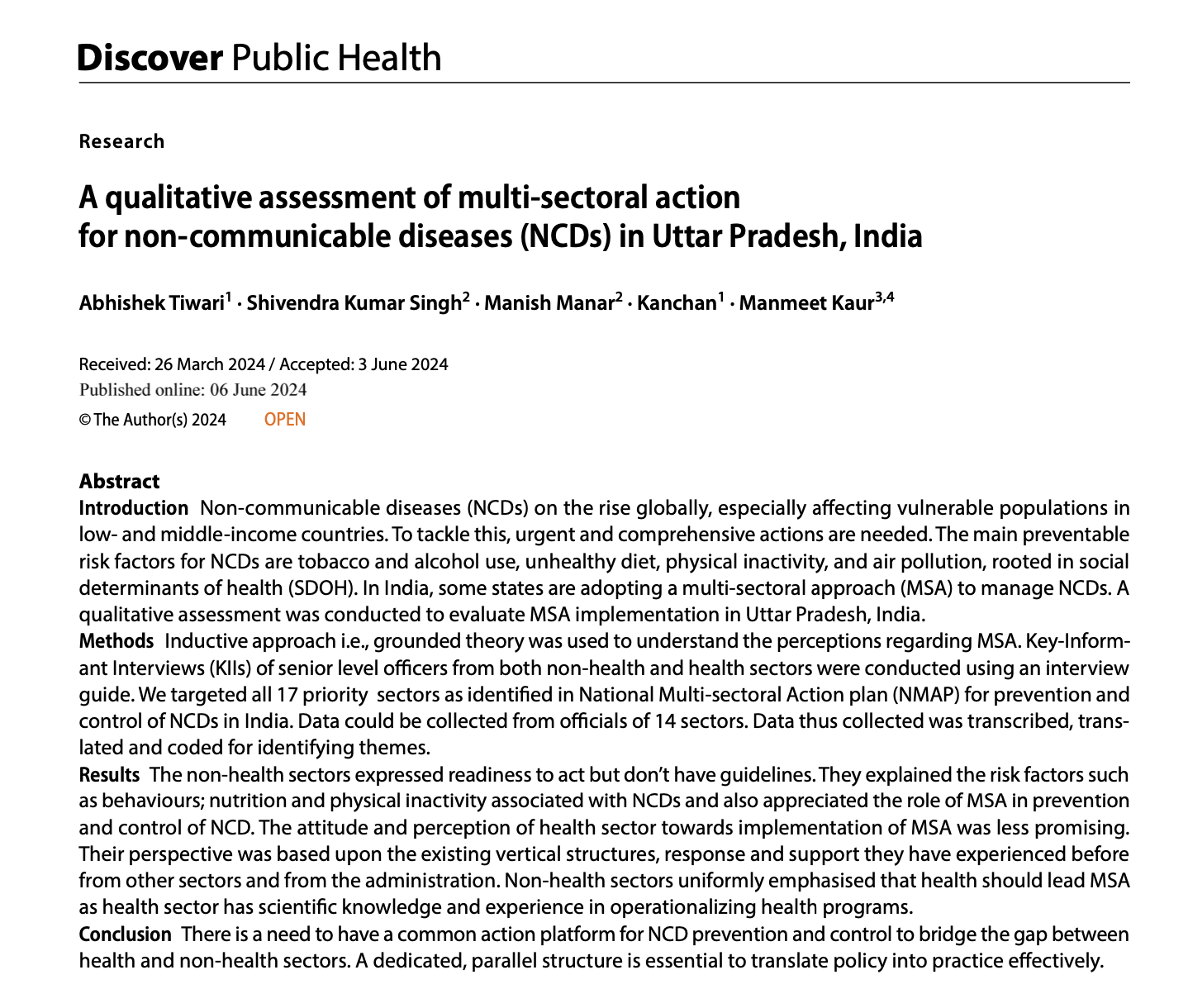WHO African Regional Office
asdasd
Declaration
21 Aug 2024
06 Jun 2024

Non-communicable diseases (NCDs) on the rise globally, especially affecting vulnerable populations in low- and middle-income countries. To tackle this, urgent and comprehensive actions are needed. The main preventable risk factors for NCDs are tobacco and alcohol use, unhealthy diet, physical inactivity, and air pollution, rooted in social determinants of health (SDOH). In India, some states are adopting a multi-sectoral approach (MSA) to manage NCDs. A qualitative assessment was conducted to evaluate MSA implementation in Uttar Pradesh, India.
Inductive approach i.e., grounded theory was used to understand the perceptions regarding MSA. Key-Informant Interviews (KIIs) of senior level officers from both non-health and health sectors were conducted using an interview guide. We targeted all 17 priority sectors as identified in National Multi-sectoral Action plan (NMAP) for prevention and control of NCDs in India. Data could be collected from officials of 14 sectors. Data thus collected was transcribed, translated and coded for identifying themes.
The non-health sectors expressed readiness to act but don’t have guidelines. They explained the risk factors such as behaviours; nutrition and physical inactivity associated with NCDs and also appreciated the role of MSA in prevention and control of NCD. The attitude and perception of health sector towards implementation of MSA was less promising. Their perspective was based upon the existing vertical structures, response and support they have experienced before from other sectors and from the administration. Non-health sectors uniformly emphasised that health should lead MSA as health sector has scientific knowledge and experience in operationalizing health programs.
There is a need to have a common action platform for NCD prevention and control to bridge the gap between health and non-health sectors. A dedicated, parallel structure is essential to translate policy into practice effectively.